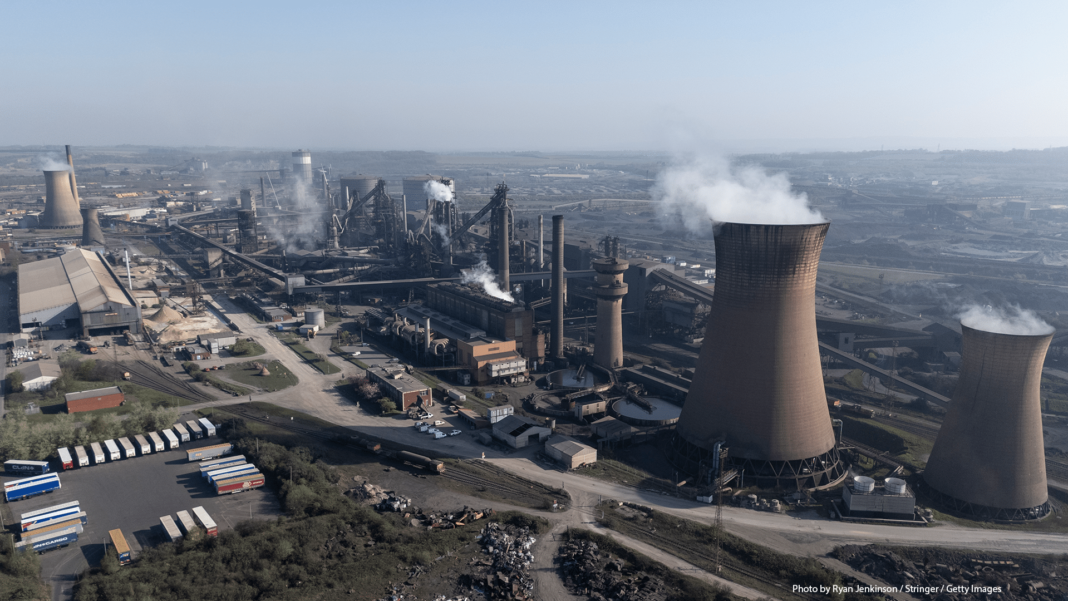The UK government’s recent intervention to prevent the closure of British Steel’s last remaining blast furnaces has offered a temporary reprieve for the domestic steel industry. This decisive action, enacted through emergency legislation, forestalls the immediate cessation of virgin steel production in the UK. However, it also poses a critical question: what is the long-term strategic direction for British steelmaking?
The intervention followed the decision by Jingye, British Steel’s Chinese owner, to shut down the blast furnaces at Scunthorpe, Lincolnshire, citing sustained financial losses. This would have marked the end of primary steel production in the UK. While the legislation has granted additional time, it is now imperative for government, industry, and trade unions to collaboratively forge a sustainable path forward—one that secures both economic viability and environmental responsibility.
Transition to Electric Arc Furnaces
The most likely technological direction for Scunthorpe involves the adoption of electric arc furnace (EAF) technology. Unlike traditional blast furnaces that use coking coal to reduce iron ore—releasing significant volumes of carbon dioxide in the process—EAFs utilise electricity to melt recycled scrap steel. This transition not only reduces emissions but aligns with the UK’s broader decarbonisation agenda.
Cardiff’s steelworks has successfully implemented EAF operations, and Tata Steel’s Port Talbot site recently followed suit, having closed its blast furnaces to accommodate this cleaner technology. Analysts and researchers argue that such a transition was necessary as early as 2019, noting that ageing infrastructure and the lengthy investment cycles associated with blast furnaces made continued reliance on coal-based methods economically unfeasible.
Nevertheless, some stakeholders, particularly trade unions, advocate for alternative low-carbon approaches that utilise hydrogen or methane within existing blast furnace systems. These methods would reduce emissions while limiting disruption to the existing workforce. However, they remain technologically and financially uncertain at present.
Energy Prices and Industrial Competitiveness
Decarbonisation efforts must be coupled with financial sustainability. One of the most pressing challenges facing UK steelmakers is the high cost of electricity. Current industrial electricity prices in the UK are significantly higher than those in key European competitors such as France, Germany, and Sweden, undermining the global competitiveness of British producers.
Industry leaders consistently identify energy affordability as the foremost policy priority. The expansion of domestic renewable energy capacity may yield benefits in the medium term, but immediate measures are required. Experts argue that aligning UK electricity costs with European benchmarks could be achieved with minimal fiscal impact, though such measures may expose the government to volatility in global gas markets.
Trade Policy and Market Distortions
The UK steel industry also faces challenges stemming from trade imbalances and market distortions. While policymakers have historically oscillated between free-market principles and state intervention, recent trends globally—including the resurgence of industrial protectionism—suggest that strategic support is increasingly necessary.
Existing import quotas, originally implemented during earlier international trade disputes, are now misaligned with current market conditions. Industry representatives report a surge in imports from countries seeking to offload surplus steel, often at prices that undercut domestic producers. There is a growing consensus that government must act more swiftly and decisively to counteract such dumping practices and to recalibrate trade policies in line with present-day realities.
Strategic Investment: Infrastructure and Innovation
Despite these challenges, there is renewed optimism in light of the government’s £2.5 billion pledge to support the steel industry. How these funds are allocated will be critical in shaping the future of the sector.
Among the proposed projects is a new plate mill capable of producing steel for wind turbine towers, a sector where the UK currently manufactures only a negligible proportion of the steel it consumes. Meeting this domestic demand would not only support the UK’s offshore wind ambitions but also create significant economic and employment opportunities.
In parallel, there is growing interest in establishing a plant for direct reduced iron (DRI) production, which would use methane—and, eventually, green hydrogen—to produce low-emission iron from ore. This would drastically reduce reliance on coal in primary steelmaking. While DRI is already widely deployed in other regions, particularly in India, no such facility exists in the UK. The government has commissioned technical studies and has signalled its support, although no major domestic steelmaker has yet committed to such an initiative. It is likely that a commercial partner will be sought to undertake this project.
The Role of Scrap and Industrial Resilience
While the preservation of primary steelmaking capacity remains a popular political objective, some experts suggest that emphasis should instead be placed on strategic manufacturing capabilities and secure supply chains. For example, the ability to produce a wide range of specialised steel products—ranging from food cans to components for defence and aerospace applications—is arguably more critical to national resilience than domestic access to virgin iron.
In this context, the UK’s annual output of 10 to 11 million tonnes of scrap steel—most of which is currently exported—represents an underutilised resource. Redirecting this scrap into domestic EAFs could fully satisfy the UK’s steel needs, which stood at 5.6 million tonnes in 2023. Ensuring that this material remains available for UK production may prove as vital as investment in new infrastructure.
As one leading researcher observed, the focus should not be on whether steel is recycled or newly produced, but whether the supply is secure and capable of responding to national needs in times of crisis.
For more UK business news updates , follow London Pulse News.


